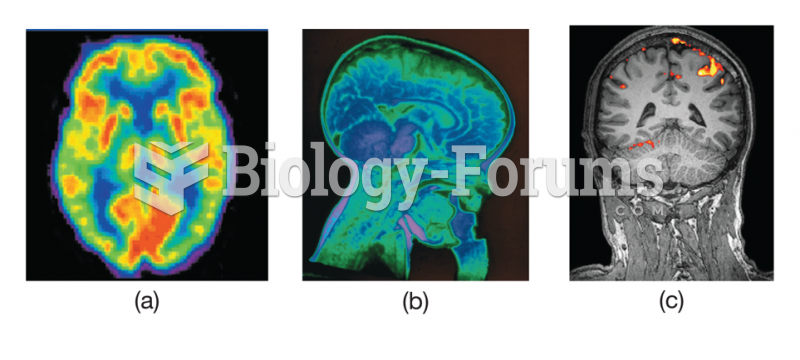|
|
|
You should not take more than 1,000 mg of vitamin E per day. Doses above this amount increase the risk of bleeding problems that can lead to a stroke.
No drugs are available to relieve parathyroid disease. Parathyroid disease is caused by a parathyroid tumor, and it needs to be removed by surgery.
Automated pill dispensing systems have alarms to alert patients when the correct dosing time has arrived. Most systems work with many varieties of medications, so patients who are taking a variety of drugs can still be in control of their dose regimen.
Adults are resistant to the bacterium that causes Botulism. These bacteria thrive in honey – therefore, honey should never be given to infants since their immune systems are not yet resistant.
More than 150,000 Americans killed by cardiovascular disease are younger than the age of 65 years.
 Key anatomical features of Homo habilis include reduced facial size, a parabolic palate, and some br
Key anatomical features of Homo habilis include reduced facial size, a parabolic palate, and some br
 Photograph taken during a laparoscopic procedure. The uterus is visible below the probe, the ovary ...
Photograph taken during a laparoscopic procedure. The uterus is visible below the probe, the ovary ...





